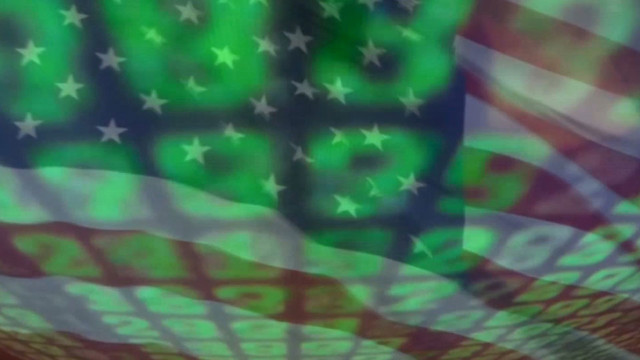The dark web is know as the go-to place online for anybody wanting to buy illicit goods. This hidden corner of the internet has an infamous reputation for hosting marketplaces that sell everything from guns and drugs to fake currency and forged ID documents.
But it turns out that the U/S/ government is also financing the main route in. CGTN’s Phil Lavelle explains
There are three layers to the web: the surface web is the most obvious one that we’re all familiar with. These are sites that are indexed – which means that they show up on searches via the likes of Yahoo, Google or DuckDuckGo. The second level is the deep web: again, sites we can all access but with specific addresses and login credentials. Think internet banking or medical records.
The dark web (or dark net) sits separately to that – it’s a collection of websites that are totally hidden to all except those who know what they’re looking for. You also need specialist software. The most common is a highly encrypted browser called Tor.
And for years, while the likes of the FBI have been trying (and, in many cases, succeeding) to close down lucrative dark web sites like the infamous Silk Road, their own Government has been paying for the browser’s development.
According to The Guardian, which went through the Tor Project’s tax filings, the company received some $1.2 million in 2015 (the most recent records available.)
That was down from two years earlier, when the figure hit $1.8 million. And all while the Department of Defense is bankrolling attempts to find weaknesses in the software, according to court reports.
So why would a Government be funding something that its own law enforcement is trying to penetrate?
“Originally, it was created by the U.S. Navy as a means for intelligence agencies to look at websites in different countries without being noticed and having their web traffic analyzed and watched. Many times, it would also be used for communicating with sources in those countries but the Navy needed also to bring others in because if they were the only ones using it, it would be obvious if they were the only ones communicating over the dark web. So they tried to mix in other people by opening it up to the public.. so now activists use it and liberals, advocates for democracy… those sort of people who would not like to be watched by hostile governments and so, by mixing in with those different groups, It covers up for the intelligence services,” Garrett Reid, an expert on these matters from the Los Angeles Business Journal explained.
Tor is a valuable service in a number of countries where free speech is an issue. Some estimates point to around 60 percent of the dark web’s makeup being for what you might call ‘good use’.
But the problem is that by its open nature, law enforcement can’t control what goes on there as Ralph Echemendia explains. He’s known as the ethical hacker – a reformed cyber-breaker, who now uses his skills to help corporations and Hollywood studios keep prying eyes out.
“It’s being monetized in ways that the authorities can’t control – especially around illegal activities”, Echemendia said. “You hear this ‘dark web’ thing and you think ‘it’s all gotta be dark, what’s happening there’? It really isn’t but right now most of it is because it’s a very small child that’s just starting to grow.”
How much exactly the dark web is worth is anybody’s guess. But that’s by design. Aside from the Tor Project’s tax filings, most of the content on the dark web is deliberately underground. And the currency of choice is Bitcoin – a cryptocurrency, which itself is untraceable.
Kaycea Campbell is Professor of Economics at Pierce College in Southern California. She gives it her best guess: “Based on the shut down of the Silk Road site, that crypto-market which allows people to buy and sell things, estimates put it at upwards of $1.2 billion – but to be honest, they could be overstated OR understated. The name ‘dark net’ in itself puts in place the idea that we just don’t know how much activity is actually taking place there.”
So while the U.S. government continues to fund the gateway into the dark web, it also tries to keep it under control. But the internet is unregulated – and the dark web even more so. It’s a tough task – and one that will cost more than a few million dollars a year to really succeed.
 CGTN America
CGTN America

